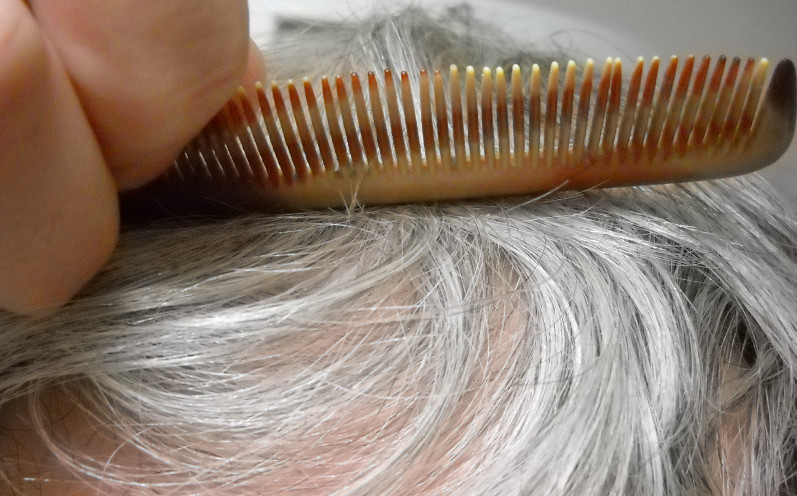Apraxia
Editor-In-Chief: Prab R Tumpati, MD
Obesity, Sleep & Internal medicine
Founder, WikiMD Wellnesspedia &
W8MD medical weight loss NYC and sleep center NYC
| Apraxia | |
|---|---|

| |
| Synonyms | N/A |
| Pronounce | N/A |
| Specialty | N/A |
| Symptoms | Difficulty with motor planning to perform tasks or movements |
| Complications | N/A |
| Onset | Can occur at any age, often after brain injury |
| Duration | Chronic |
| Types | N/A |
| Causes | Stroke, traumatic brain injury, neurodegenerative disease |
| Risks | Age, brain injury, neurodegenerative disorders |
| Diagnosis | Clinical assessment, neuropsychological testing |
| Differential diagnosis | Aphasia, dysarthria, ataxia |
| Prevention | N/A |
| Treatment | Occupational therapy, speech therapy, physical therapy |
| Medication | N/A |
| Prognosis | Varies depending on cause and severity |
| Frequency | Varies, more common in older adults |
| Deaths | N/A |
A neurological disorder affecting motor planning
Apraxia is a neurological disorder characterized by the inability to perform learned (familiar) movements on command, even though the command is understood and there is a willingness to perform the movement. It is not due to a lack of coordination, weakness, or sensory loss, but rather a disruption in the brain's ability to plan and execute the movements.
Types of Apraxia[edit | edit source]
Apraxia can be classified into several types, each affecting different aspects of motor planning and execution:
Ideomotor Apraxia[edit | edit source]
This type involves difficulty in executing the correct movements in response to a verbal command. Patients may know what they want to do but cannot translate that into the correct motor action.
Ideational Apraxia[edit | edit source]
In ideational apraxia, there is a disruption in the conceptualization of a task. Patients may have difficulty sequencing the steps needed to complete a task, such as making a cup of coffee.
Buccofacial or Orofacial Apraxia[edit | edit source]
This type affects the ability to carry out movements of the face and mouth on command, such as licking lips or whistling.
Limb-Kinetic Apraxia[edit | edit source]
Limb-kinetic apraxia involves difficulty in making precise movements with a limb, such as picking up a small object.
Causes[edit | edit source]
Apraxia is often caused by damage to specific areas of the brain that are involved in motor planning and execution. This damage can result from:
Diagnosis[edit | edit source]
The diagnosis of apraxia typically involves a comprehensive neurological examination, including:
- Assessment of motor skills
- Evaluation of the ability to perform tasks on command
- Neuroimaging techniques such as MRI or CT scan to identify areas of brain damage
Treatment[edit | edit source]
While there is no cure for apraxia, treatment focuses on improving the patient's ability to perform daily activities. This may include:
- Occupational therapy
- Physical therapy
- Speech therapy for those with buccofacial apraxia
See also[edit | edit source]
Transform your life with W8MD's budget GLP1 injections from $125
W8MD offers a medical weight loss program NYC and a clinic to lose weight in Philadelphia. Our W8MD's physician supervised medical weight loss centers in NYC provides expert medical guidance, and offers telemedicine options for convenience.
Why choose W8MD?
- Comprehensive care with FDA-approved weight loss medications including:
- loss injections in NYC both generic and brand names:
- weight loss medications including Phentermine, Qsymia, Diethylpropion etc.
- Accept most insurances for visits or discounted self pay cost.
- Generic weight loss injections starting from just $125.00 for the starting dose
- In person weight loss NYC and telemedicine medical weight loss options in New York city available
- Budget GLP1 weight loss injections in NYC starting from $125.00 biweekly with insurance!
Book Your Appointment
Start your NYC weight loss journey today at our NYC medical weight loss, and Philadelphia medical weight loss Call (718)946-5500 for NY and 215 676 2334 for PA
Search WikiMD
Ad.Tired of being Overweight? Try W8MD's NYC physician weight loss.
Semaglutide (Ozempic / Wegovy and Tirzepatide (Mounjaro / Zepbound) available. Call 718 946 5500.
Advertise on WikiMD
|
WikiMD's Wellness Encyclopedia |
| Let Food Be Thy Medicine Medicine Thy Food - Hippocrates |
Translate this page: - East Asian
中文,
日本,
한국어,
South Asian
हिन्दी,
தமிழ்,
తెలుగు,
Urdu,
ಕನ್ನಡ,
Southeast Asian
Indonesian,
Vietnamese,
Thai,
မြန်မာဘာသာ,
বাংলা
European
español,
Deutsch,
français,
Greek,
português do Brasil,
polski,
română,
русский,
Nederlands,
norsk,
svenska,
suomi,
Italian
Middle Eastern & African
عربى,
Turkish,
Persian,
Hebrew,
Afrikaans,
isiZulu,
Kiswahili,
Other
Bulgarian,
Hungarian,
Czech,
Swedish,
മലയാളം,
मराठी,
ਪੰਜਾਬੀ,
ગુજરાતી,
Portuguese,
Ukrainian
Medical Disclaimer: WikiMD is not a substitute for professional medical advice. The information on WikiMD is provided as an information resource only, may be incorrect, outdated or misleading, and is not to be used or relied on for any diagnostic or treatment purposes. Please consult your health care provider before making any healthcare decisions or for guidance about a specific medical condition. WikiMD expressly disclaims responsibility, and shall have no liability, for any damages, loss, injury, or liability whatsoever suffered as a result of your reliance on the information contained in this site. By visiting this site you agree to the foregoing terms and conditions, which may from time to time be changed or supplemented by WikiMD. If you do not agree to the foregoing terms and conditions, you should not enter or use this site. See full disclaimer.
Credits:Most images are courtesy of Wikimedia commons, and templates, categories Wikipedia, licensed under CC BY SA or similar.
Contributors: Prab R. Tumpati, MD



